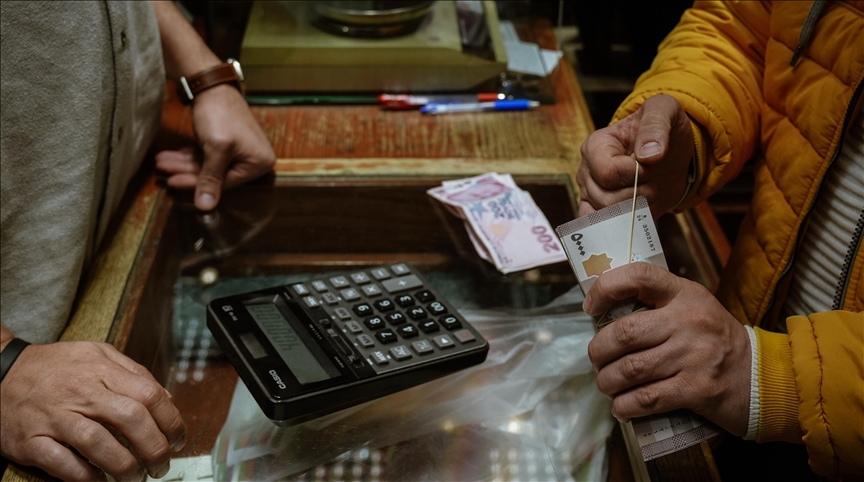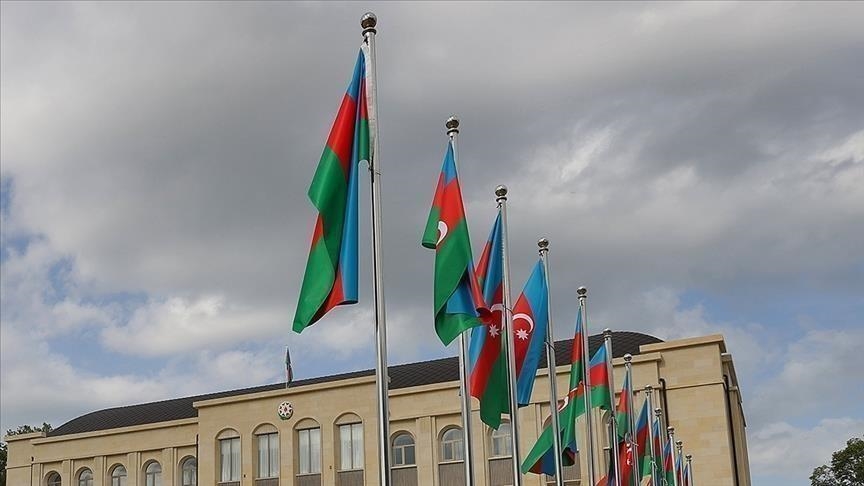Syria sees economic revival after Baath regime collapse
DAMASCUS
The fall of the Assad regime on Dec. 8, marked by opposition forces seizing the capital, Damascus, has brought significant relief to Syria’s economy and its citizens.
The collapse of the regime has not only removed the oppressive forces of the military, police and the mafia but also marks the dawn of a new economic chapter, according to Syrians.
Under the new administration, harsh restrictions on currency trading — once punishable by up to seven years in prison –have been lifted, along with hefty fines.
Import and export regulations have eased, and public sector salaries have surged by 300%, according to government statements. Banks have reopened and long queues are now a common sight at ATMs across Damascus.
Prices for commodities like flour, sugar, and fuel have begun to drop. Under Assad, soldiers earning $35 per month reportedly acted as mafia enforcers, extorting money from citizens and businesses.
High-ranking regime officials monopolized essential goods, driving up prices through bribes and black-market schemes.
“From Dec. 8, everything changed 180 degrees,” said Wisam Bakdash, a third-generation manager of Bakdash Ice Cream in the iconic Al-Hamidiyah Souq.
“People shop when they are happy, but fear kept them from buying. Now, the economy, people’s safety, and even their faces have changed. Once somber, people now smile,” Bakdash told Anadolu.
He noted that the removal of currency exchange restrictions has caused prices to drop, making essentials like sugar and salep more affordable. He added that regime-linked figures previously controlled these goods to inflate prices for personal gain.
Signs of revival
The Al-Hamidiyah Souq, built during the Ottoman era, has regained vibrancy. Shop signs now advertise currency exchanges in dollars, euros and Turkish liras, while street vendors call out to potential customers.
Carrying foreign currency, once a crime punishable by imprisonment, is now common practice, with Syrians openly trading money in the market.
A banner celebrating Syria’s liberation hangs prominently in the souq, while Christian neighborhoods in Damascus’ Old City are adorned with festive Christmas decorations. Residents in colorful attire can be seen leaving churches, adding to the city’s lively atmosphere.
The economic resurgence is evident in business practices as well.
Money-counting machines, once rare, are now ubiquitous in shops and markets. With the largest Syrian banknote — 5,000 liras ($0.50) — only enough to buy half a liter of water, Syrians often carry wads of cash for daily transactions. Although bank cards are operational, high account fees deter many from using them.
Bashar al-Assad, who ruled Syria for nearly 25 years, fled to Russia after anti-regime forces captured Damascus on Dec. 8, ending the Baath Party’s 61-year grip on power.
The opposition’s takeover followed a swift offensive by Hayat Tahrir al-Sham (HTS), during which key cities fell in less than two weeks.
Anadolu Agency website contains only a portion of the news stories offered to subscribers in the AA News Broadcasting System (HAS), and in summarized form. Please contact us for subscription options.




